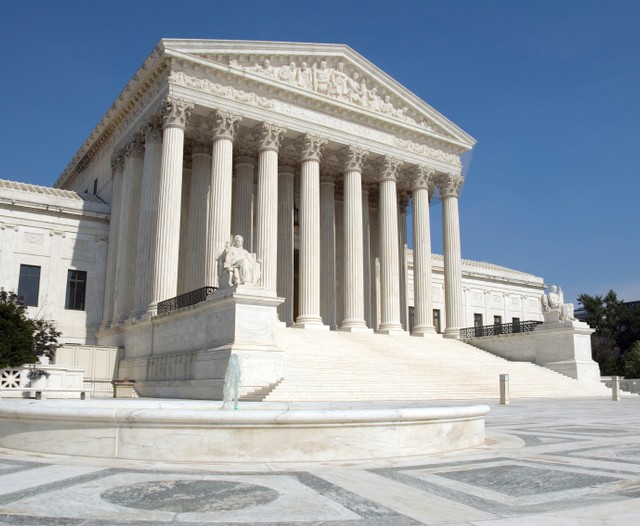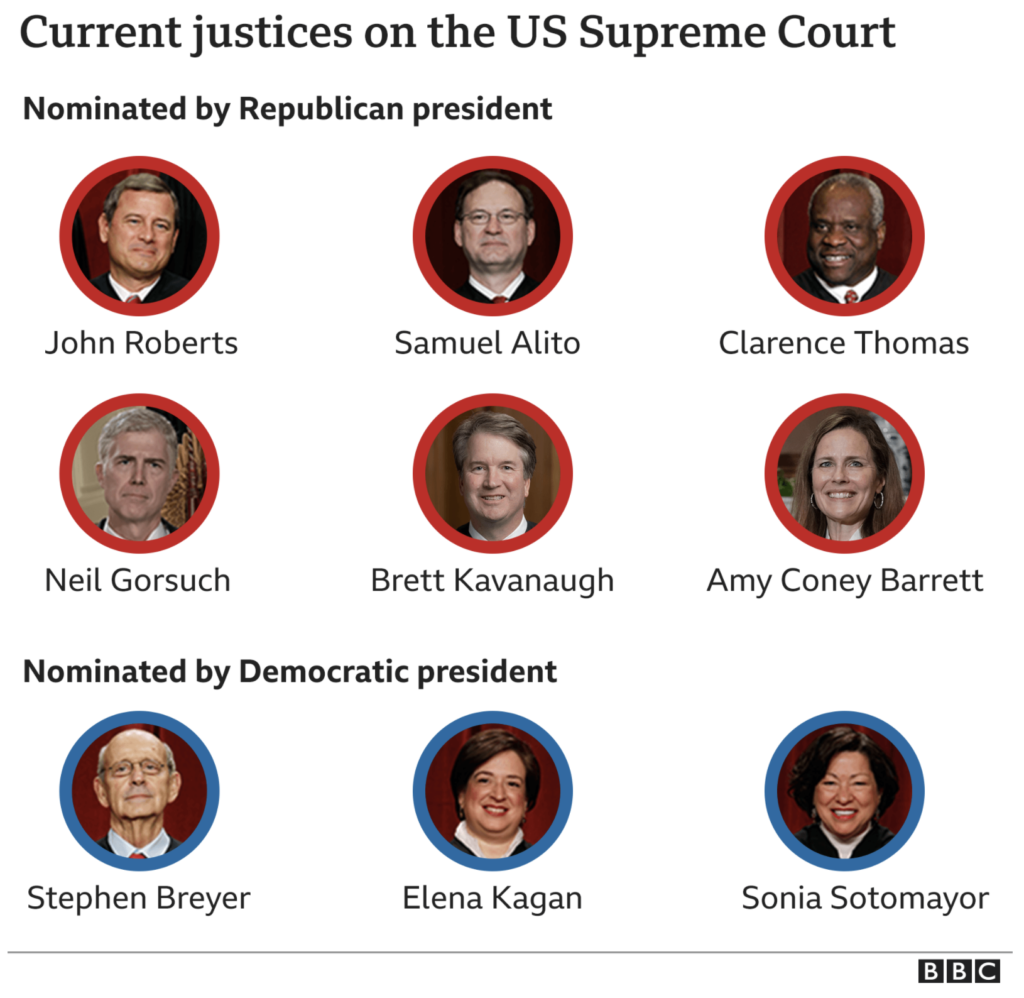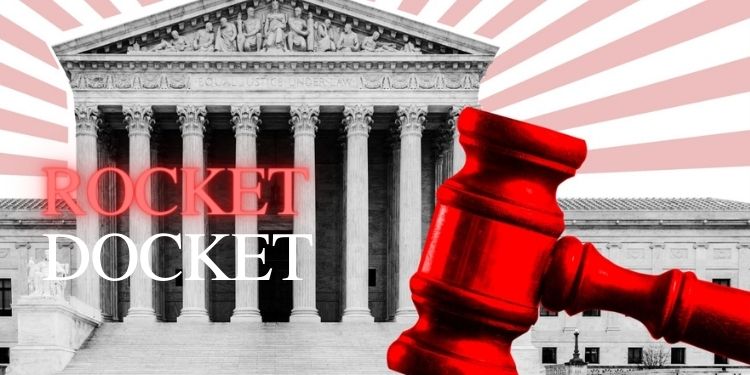Supreme Court hears arguments on restrictive Texas abortion law and biggest Second Amendment case in a decade.
The Supreme Court will be the scene of high drama in the coming days when the justices hear arguments over abortion and gun rights in what could be a defining week of a blockbuster court term. The pair of high-stakes oral arguments on divisive matters of intense public interest may provide a glimpse into the 6-3 conservative court’s willingness to reshape American life.
The Supreme Court rarely allows a case to leapfrog the intermediate appeals court, but it did that in two SB8 cases, one brought by a group of Texas clinics, and one by the Department of Justice. The Court requested briefs and rearranged its November calendar to accommodate the arguments. The decision to expedite the proceedings so dramatically may well have been a response to the public blowback to the Court’s initial handling of SB8. After the Court first silently allowed the law to go into effect, the Court was widely criticized for its inconsistent treatment of the request for emergency relief in this case and its willingness to grant such relief in other cases, including those involving religious-liberty challenges to certain COVID-19 restrictions.
The Supreme Court is taking up challenges to a Texas law that has virtually ended abortion in the nation’s second-largest state after six weeks of pregnancy, with at least one conservative justice who let the law take effect raising questions about its novel structure. The justices began hearing arguments Monday.

Justice Brett Kavanaugh, who previously allowed the law to take effect in September in a decision that split the court 5-4, suggested that the unusual enforcement scheme could be problematic. “There’s a loophole that’s been exploited here, or used here,” he said, explaining that the question for the court is whether to “close that loophole.” Kavanaugh suggested that the “principle” and “whole sweep” of a 1908 Supreme Court case would “suggest extending the principle here, arguably” and closing the loophole. Five conservative justices, including three who were appointed by President Donald Trump, were in the majority letting the law take effect. Chief Justice John Roberts joined the court’s three liberal justices in dissent.
The Department of Justice (DOJ) and Texas abortion providers argue that S.B. 8 violates broad protections for abortion access that the Supreme Court has recognized for nearly five decades, starting with the 1973 decision in Roe v. Wade. The court on Monday did not directly address the legality of S.B. 8. Rather, the justices considered whether the challengers can have their claims heard in federal court. That question is complicated by the law’s unique legislative design, which critics liken to a “bounty” system.
S.B. 8 gives enforcement authority to private citizens by allowing them to file lawsuits that fetch at least $10,000 if they successfully show a defendant performed, aided or abetted an abortion after federal cardiac activity was detected, typically around six weeks of pregnancy — which is before most women know they are pregnant. The law’s enforcement mechanism has given rise to “complex and novel” procedural questions, the 5-4 majority court said in its Sept. 1 ruling, which denied abortion providers’ emergency request to block the law.
Texas on Monday urged the justices to find that the challengers lack the legal right to bring a federal suit against Texas, state officials or members of its judiciary in their bid to invalidate the six-week ban. Any legal challenge to S.B. 8, Texas argues, should be raised by a defendant in state court who has been sued for violating the six-week ban.

DOJ and the Texas abortion providers say that barring their claims from federal court would effectively nullify the long-recognized constitutional right to an abortion before a fetus is viable, typically around 24 weeks of pregnancy, and undermine the U.S. Constitution’s recognition that federal law outdoes state law. Arguments over the Texas restriction comes exactly a month before the court hears arguments in a separate case involving Mississippi’s 15-week abortion ban, which poses a direct challenge to Roe v. Wade.
In neither case the Supreme Court was hearing Monday is the right to an abortion directly at issue. But the motivation for lawsuits filed by abortion providers and the Justice Department is that the Texas law conflicts with landmark Supreme Court rulings that prevent a state from banning abortion early in pregnancy. Arguing for the United States, Solicitor General Elizabeth Prelogar told the justices that Texas’ law was enacted in “open defiance” of Supreme Court precedent. “It enacted a law that clearly violates this court’s precedents,” she said.
The clashes will thrust the court into the center of a decades-long battle over one of the nation’s most contentious issues. “This term features a dizzying array of legal disputes that highlight the perils and expectations of a system so heavily dependent on judges to enforce individual rights,” said Robert Tsai, a constitutional law professor at Boston University. “In the abortion rights cases, a number of citizens want judges to step in and protect a person’s right to choose against the moral preferences of fellow citizens.”
Under the Supreme Court’s 1973 Roe v. Wade decision and 1992 Planned Parenthood v. Casey decision, states are prevented from banning abortion before viability, the point at which a fetus can survive outside the womb, around 24 weeks of pregnancy. The justices will hear a separate challenge to those decisions in a case over Mississippi’s ban on abortion after 15 weeks. Those arguments are set for Dec. 1.
Today the justices will hear arguments in one of the biggest Second Amendment cases in a decade. At issue is a New York gun control measure that challengers say infringes on their right to bear arms outside the home. The New York law under review gives discretion to licensing officials over whether to approve concealed carry permits. The lawsuit arose after an official denied two New York residents’ requests for unrestricted carry licenses, saying the applicants had not demonstrated a “proper cause” to carry handguns at all times.
The Biden administration has thrown its weight behind New York and urged the court to defer to the longstanding practice of allowing legislatures to place reasonable limits on firearms to protect public safety. The case has drawn enormous outside interest. Firearms advocates, who say history is on their side, want the justices to use the case as a vehicle to expand gun rights outside the home. Many Democratic-run states and cities, as well as gun control advocacy groups, warn that public safety would be imperiled if gun regulations are scuttled.
Both cases will further fuel the culture wars which have gripped our country since the Trump Presidency. Conservatives are using every tool possible to maintain their hegemonic relationship that exists in our society. The only way to defeat these tactics by participating in another area under attack, our right to vote.





